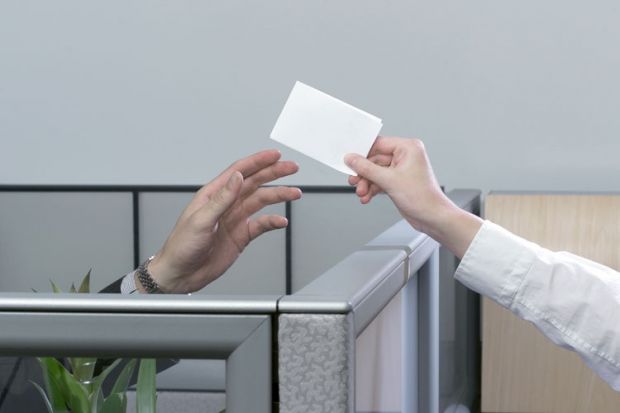Leaving an informal note to a colleague in the published version of a paper is embarrassing – but it gets worse when that note sparks allegations about research fraud.
The field of organic chemistry has been thrown into uproar after the academic paper in question was published online last month in the American Chemical Society journal Organometallics.
The paper’s supporting information – additional material that supplements the main text – contains the words: “Emma, please insert NMR [nuclear magnetic resonance spectroscopy] data here! where are they? and for this compound, just make up an elemental analysis.”
The University of Western Australia, which employs the paper’s senior author Reto Dorta, is now reviewing the case.
Elemental microanalysis is a common technique used to establish the structure of a compound. Emma Drinkel is the first author of the paper, “Synthesis, structure, and catalytic studies of palladium and platinum bis-sulfoxide complexes”.
Critical bloggers have suggested that Dr Dorta put the note in a draft version of the paper and forgot to remove it before submitting the manuscript for publication.
Both authors were based at the University of Zurich when the work described in the paper was carried out. Dr Drinkel, who was then a PhD student, is now a postdoctoral researcher at the Federal University of Santa Catarina in Brazil. Dr Dorta, her thesis supervisor, is now an associate professor at The University of Western Australia. Neither responded to requests from Times Higher Education for comment.
It has been speculated that Dr Dorta, reportedly not a native English speaker, may not have intended “make up” to mean “fabricate”.
However, Tony Barrett, head of synthesis at Imperial College London, questioned whether the phrase did indeed mean “fabricate the microanalysis results”. If this were the case, he said, it would be “utterly unacceptable” and “appalling”.
John Gladysz, Organometallics editor-in-chief and distinguished professor of chemistry at Texas A&M University, told THE he could not comment while the paper was “under review”. This refers to the fact, explained in an open letter to Organometallics readers, that he has removed the paper from the journal’s queue of papers to appear in print until he receives the original data from the microanalysis – although the article remains on the journal’s website.
“Many readers have commented that the statement reflects poorly on the moral or ethical character of the author, but the broad ‘retribution’ that some would seek is not our purview,” Professor Gladysz adds in the letter.
A University of Western Australia spokeswoman said the institution had a “strong commitment to the responsible conduct of research” and it was reviewing the facts of the case with “the researcher…the journal, and related parties”.
Register to continue
Why register?
- Registration is free and only takes a moment
- Once registered, you can read 3 articles a month
- Sign up for our newsletter
Subscribe
Or subscribe for unlimited access to:
- Unlimited access to news, views, insights & reviews
- Digital editions
- Digital access to THE’s university and college rankings analysis
Already registered or a current subscriber? Login




